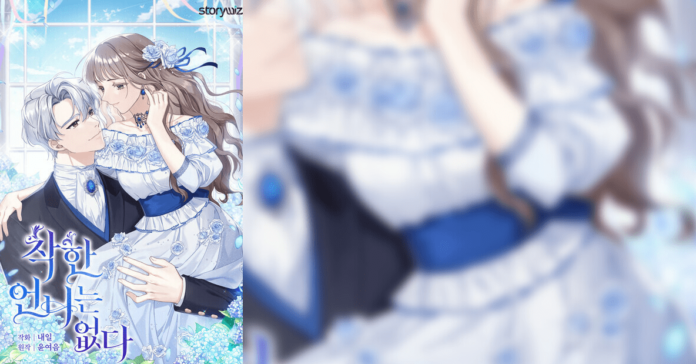“The Kind Older Sister is No More” conveys a sense of change and loss, suggesting a shift that modifies the fundamental structure of family relationships. Many perspectives, such as those from literature, psychology, relationships, and even society expectations, can be used to examine this idea. The development of the older sister role in different stories offers a wealth of information on how people change and mature in response to life events, frequently developing into more nuanced characters in the process. “The Kind Older Sister is No More” is a representation for how relationships between people inevitably evolve.
Also Read Article: Masalwseen: Revealing Aromas 9 Ultimate Grateful Culinary Symphony
Table of Contents
The Older Sister Archetype:
The older sister archetype has historically been characterized as a responsible, nurturing, and guardian role. She is frequently seen as her younger siblings’ second mother, offering them care, support, and direction. It is anticipated that this character will be a model of selflessness, knowledge, and patience during difficult times. “The Kind Older Sister is No More” is a representation for how relationships between people inevitably evolve. Her job frequently requires her to put the needs of others before her own, which can be both fulfilling and demanding. In narratives, the benevolent elder sister serves as a pillar of support, keeping the family afloat throughout trying times. She is the rock that keeps the other siblings calm by being there to lend a sympathetic hand or a listening ear. But when the line “The Kind Older Sister is No More” appears, it signals a departure from this romanticized portrayal, implying a significant metamorphosis that modifies her personality or position within the family.
Recognizing the Change
What would have happened to the sweet older sister that was so kind? Such a shift could be caused by a number of things, such as life events, trauma, burnout, personal development, or even the recognition of her own unfulfilled needs. “The Kind Older Sister is No More” is a representation for how relationships between people inevitably evolve. A defense mechanism that is created to deal with challenging circumstances may be the act of changing from friendliness to something more aloof or guarded. The older sister may feel overpowered by life’s obstacles and decide to reevaluate her role or take a different tack in order to better defend herself or grow personally.
- Emotional Burnout: This is one of the most frequent causes of this kind of change. It might be draining to always be the one to help everyone else without getting anything in return. The older sister who used to offer without conditions can eventually get to the point where she thinks she is at her breaking point. She may become emotionally exhausted and withdraw her generosity in favor of a more detached or practical manner.
- Personal Growth and Boundaries: Personal growth offers an alternative viewpoint on this change. People frequently become more conscious of their own needs and limitations as they get older. It’s possible that the elder sister came to the realization that her constant selflessness caused her own wants to be unmet. She might decide to set limits that didn’t exist before in order to take back control of her life, which would alter how she interacts with her siblings. If her evolution seems harsh or cruel at first, it may actually be a step in the right direction toward independence and self-care.
- Reaction to Betrayal or Disappointment: This shift may also result from persistent betrayal or disappointment from people she trusted. The elder sister could lose faith in her position if her generosity was mistreated or taken for granted. Her shift from being sympathetic and compassionate to cold and aloof might have been a response to feeling let down or undervalued by the same individuals she had been there to support.
The Story of Literature and Media Transformation
It’s not unusual to see a nice older sister go through a big transformation in TV, movies, or literature. Characters that exemplify this metamorphosis include Katniss Everdeen from “The Hunger Games” and Elsa from Disney’s “Frozen”. These characters are frequently initially tender individuals who must change because of the hard reality they encounter. Their benevolence is balanced by strength, resolution, or even coldness as they deal with personal challenges. It is implied that their growth was a vital step toward survival and prosperity in a hostile environment.This change is frequently depicted in stories as a loss of innocence or an essential shedding of naïve. “The Kind Older Sister is No More” is a representation for how relationships between people inevitably evolve. The character’s decision to abandon compassion might be interpreted as an act of empowerment, a refusal to let other people’s expectations define her and to take charge of her own life.
Family Dynamics Consequences
The good older sister’s metamorphosis has an impact on family dynamics in addition to her own character. Her siblings could find it difficult to comprehend or accept this change because they were used to her kind assistance. They may experience feelings of abandonment or resentment, unable to recognize the psychological struggles that have contributed to her metamorphosis. The younger siblings are forced to adjust to this change, and they frequently grow up as a result of realizing they must now navigate life without the same amount of safety or direction. The line “The Kind Older Sister is No More” serves as a family-wide wake-up call. “The Kind Older Sister is No More” is a representation for how relationships between people inevitably evolve. It may inspire others to take charge, assume accountability, and share the load that the The Kind Older Sister is No More had carried alone. A more equal and balanced family structure where everyone learns to support one another may result from this shift in dynamics.
In conclusion, accepting complexity and change
“The Kind Older Sister is No More” is a representation for how relationships between people inevitably evolve. It draws attention to the complexity of personal development and demonstrates how roles cannot permanently define an individual. Relationships and the roles people play within them need to change as individuals do. Even though losing the loving The Kind Older Sister is No More could seem like a bad thing at first, it frequently results in a better understanding of oneself and a more genuine manner of interacting with other people. Ultimately, the kind elder sister’s development into a more nuanced, multifaceted persona is a mirror of life’s inevitable course. It serves as a reminder that everyone has the freedom to develop, redefine who they are, and go beyond what other people think of them. “The Kind Older Sister is No More” is a representation for how relationships between people inevitably evolve.




